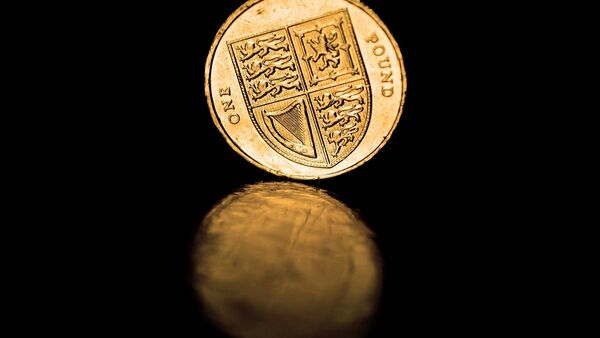Kristian Rouz – Confidence in the UK economy is on the rise despite the gloomiest post-Brexit projections, supporting a brighter growth outlook into the new year, as shoppers and business owners have stepped up borrowing.
Overall, the rise in domestic borrowing is likely to promote volatility across many sectors of the UK’s economy, resulting in higher investment appeal of equity and currency assets, and it is safe to say the downside effects of last year’s referendum are almost negligible at this point.
According to data from Visa, the credit and debit card processing company, published Monday, spending in Britain rose by 2.6pc in December in a year-on-year estimate, with hotels and accommodation, restaurants and pubs on top of the list with a 7.3pc annualised advance. UK consumer spending has been the strongest in two year in 4Q16, according to Visa.
"It's almost as though the referendum had not taken place," Andy Haldane of the Bank of England (BOE) said.
However, another thing is that British consumers and businesses alike have stepped up borrowing significantly, which might allow the central bank to tighten its monetary policies after a 0.25pc decrease in base interest rates several months ago. The regulator had been alerted by the negative post-Brexit economic projections and adjusted its policies accordingly, but the economy seems to have weathered the storm to the surprise of many observers and policymakers, and the current expansion in domestic credit might be a signal of the economy overheating.
For instance, UK businesses are eyeing a 22pc year-on-year increase in borrowed capital this year. Meanwhile, the UK economy has expanded for the past 15 quarters, with historic 3.1pc growth in the first eleven months of 2016.
"The UK economy remains in a strong overall position to support expenditure growth into 2017," Annabel Fiddes of IHS Markit said. "However, rising inflationary pressures could squeeze spending power, and, along with Brexit-related uncertainty, this could soften the overall growth trajectory of household spending."
At the same time, this optimism bears significant hazards to economic stability, which might prompt the BOE to tighten rates soon. UK default rates on unsecured loans have risen to their highest since 2008, at 30pc in September 2016 compared to that of 50pc at the height of the global crisis eight years ago.
"Without the uncertainty caused by the Brexit vote, the rebound in U.K. consumer credit would already have warranted higher Bank of England rates," Holger Schmieding of Berenberg Bank in London said.
All this data says the UK economy has entered the new year in an unexpectedly solid shape, and the feverish expansion in select sectors is stirring concerns of greater volatility, supporting the case for hikes in interest rates by the BOE. Base borrowing costs in the UK have been low, at 0.25pc, since 4 August 2016, and the upbeat growth and inflation figures, along with higher gilt yields, are pushing natural interest rates higher.
Subsequently, a hike in base borrowing costs, the first since 2009, could hit all the consumers and businesses currently on a debt binge, meaning a harsh hangover for the non-financial sector of the economy in the coming months.





